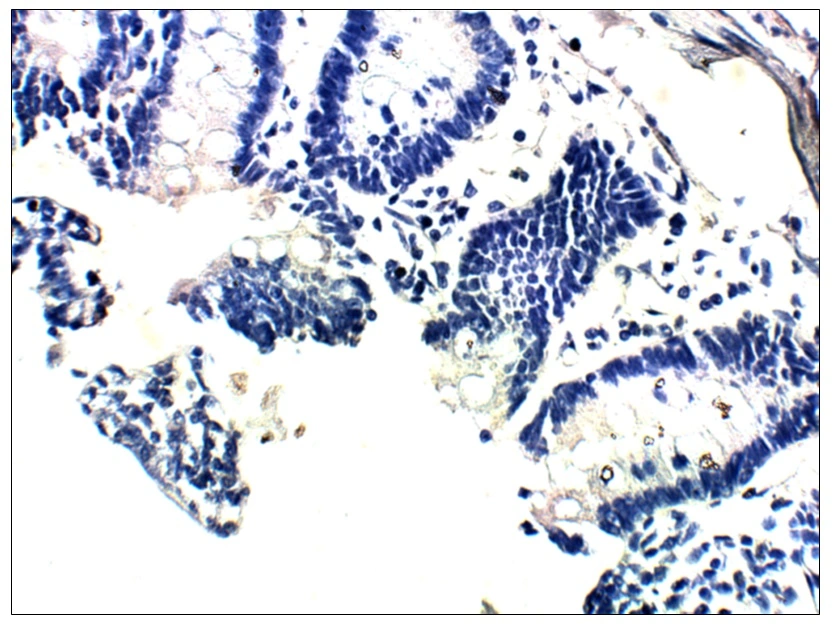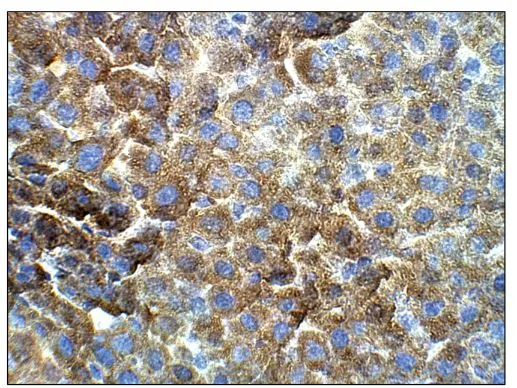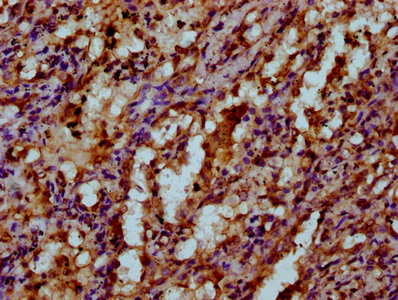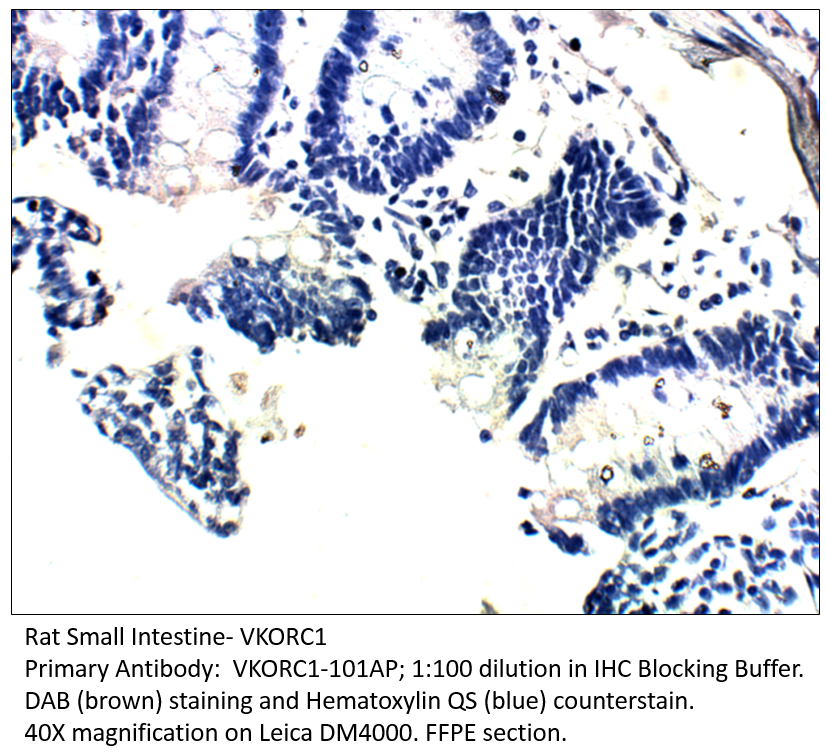
IHC-P analysis of rat small intestine tissue using GTX47837 Vitamin K epoxide reductase antibody. Dilution : 1:100
Vitamin K epoxide reductase antibody
GTX47837
ApplicationsImmunoFluorescence, ImmunoPrecipitation, Western Blot, ELISA, ImmunoCytoChemistry, ImmunoHistoChemistry, ImmunoHistoChemistry Paraffin
Product group Antibodies
ReactivityHuman, Mouse, Rat
TargetVKORC1
Overview
- SupplierGeneTex
- Product NameVitamin K epoxide reductase antibody
- Delivery Days Customer9
- Application Supplier NoteWB: 1:500. ICC/IF: 1:250. IP: 1:200. ELISA: 1:50000. *Optimal dilutions/concentrations should be determined by the researcher.Not tested in other applications.
- ApplicationsImmunoFluorescence, ImmunoPrecipitation, Western Blot, ELISA, ImmunoCytoChemistry, ImmunoHistoChemistry, ImmunoHistoChemistry Paraffin
- CertificationResearch Use Only
- ClonalityPolyclonal
- Concentration0.65-0.70 mg/ml
- ConjugateUnconjugated
- Gene ID79001
- Target nameVKORC1
- Target descriptionvitamin K epoxide reductase complex subunit 1
- Target synonymsEDTP308, MST134, MST576, VKCFD2, VKOR, vitamin K epoxide reductase complex subunit 1, phylloquinone epoxide reductase, vitamin K dependent clotting factors deficiency 2, vitamin K oxidoreductase, vitamin K1 2,3-epoxide reductase subunit 1, vitamin K1 epoxide reductase (warfarin-sensitive)
- HostRabbit
- IsotypeIgG
- Protein IDQ9BQB6
- Protein NameVitamin K epoxide reductase complex subunit 1
- Scientific DescriptionThis gene encodes the catalytic subunit of the vitamin K epoxide reductase complex, which is responsible for the reduction of inactive vitamin K 2,3-epoxide to active vitamin K in the endoplasmic reticulum membrane. Vitamin K is a required co-factor for carboxylation of glutamic acid residues by vitamin K-dependent gamma-carboxylase in blood-clotting enzymes. Allelic variation in this gene is associated with vitamin k-dependent clotting factors combined deficiency of 2, and increased resistance or sensitivity to warfarin, an inhibitor of vitamin K epoxide reductase. Pseudogenes of this gene are located on chromosomes 1 and X. Alternative splicing results in multiple transcript variants. [provided by RefSeq, Aug 2015]
- ReactivityHuman, Mouse, Rat
- Storage Instruction-20°C or -80°C,2°C to 8°C
- UNSPSC41116161
References
- Sodium dehydroacetate-induced disorder of coagulation function in broiler chickens and the protective effect afforded by vitamin K.Read this paper
- Mechanism of VKORC1 and VKORC1L1 signaling in the effects of sodium dehydroacetate on coagulation factors in rat hepatocytes.Read this paper
- Sex Metabolic Differences and Effects on Blood Coagulation Among Rats Exposed to Sodium Dehydroacetate. Chen X et al., 2021, Front PharmacolRead this paper






